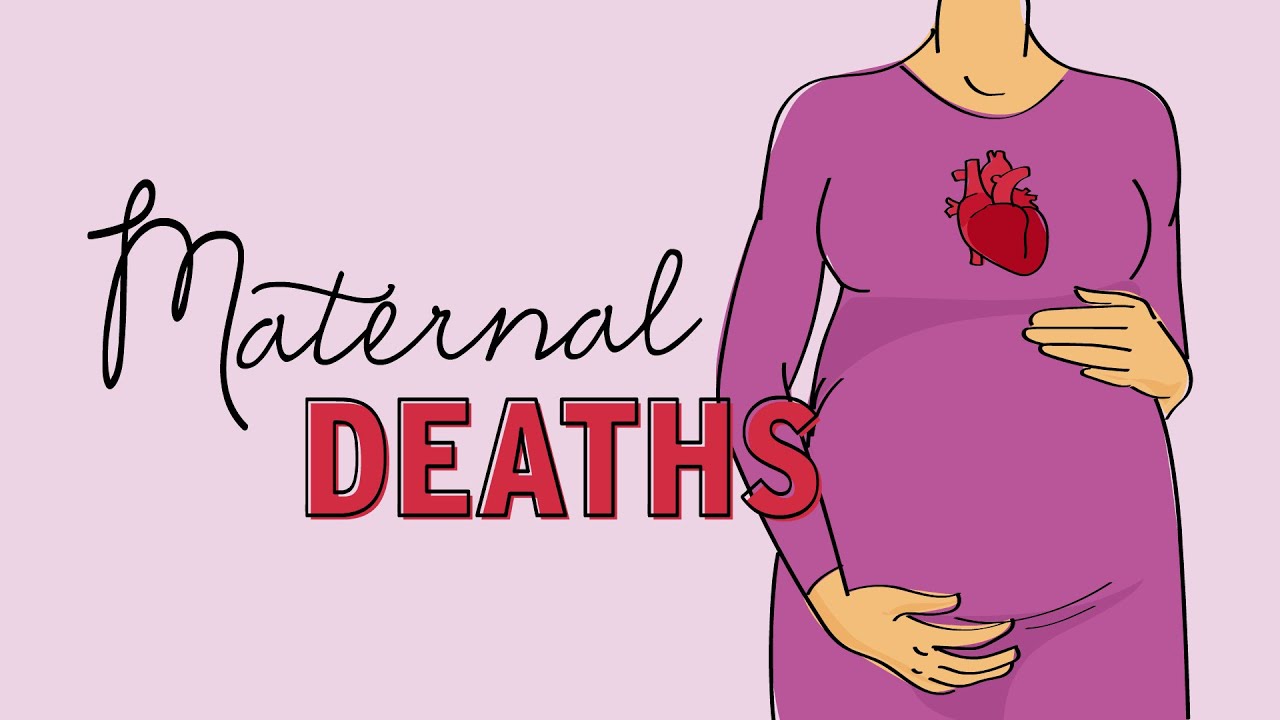On a visit to the village some months ago, an aunt invited me to go for a condolence visit. The woman, a classmate of hers in their local Islamiyya had passed on in the early hours of the day after the birth of her son. I reluctantly agreed as a part of me already knew how the story would unfold.
The deceased lived in a very rural part of town which was hard to reach by car. Her husband lived with his three wives and thirteen children in a four-bedroom poorly designed house. Her co-wives narrated how she had gone into labour at around 1am and since it was her seventh delivery, they were confident that she would be able to deliver safely on her own. After a few hours, she was delivered of a baby boy and the umbilical cord was cut. She then lay on her side to get some much-needed rest before the midwife could be called in the morning. An hour later, she was woken up by her co-wife who discovered that her wrapper was completely soaked in blood. The new mother who was by then drowsy, kept repeating ‘Jini na zai qare’ loosely meaning ‘my blood will soon finish’ or ‘I am running out of blood’. The husband, who was asleep was woken up and asked to get help.
- Nollywood movie “Voiceless” receives 15 nominations at Universal movie awards
- Senator Moro urges safe rescue of Vanguard reporter
To cut a sad and tortuous story short- the husband refused to wake up his neighbour who had a tricycle or get his own motorcycle as he said “nothing could be done at night”. His reasons were that it would be difficult to navigate from their location to the hospital and so, “It did not make sense to disturb people at night.” And so, they waited. And while they waited, this woman continued to bleed and bleed until she died by the time the second call to dawn prayer was made.
While my aunt and other people who had come to pay their respects bemoaned the nature of her death, the narrative was not particularly shocking to me. This is what is termed the ‘first delay’ in the prevention of maternal death.
The first delay is when there is delay in making the decision to seek medical care. Personally, I feel this is the most fatal delay and the one that pertains most to our environment. When the decision has been made to actually seek care, most barriers can be overcome. If the husband had agreed to simply take his wife to the hospital, where she could have been easily managed for uterine atony (which was most likely the case), he would have found a way to do it. We have all seen pictures or videos or even witnessed women being carried in wheelbarrows, carts driven by cows and rafts to the nearest health care centre. All in a bid to save a mother’s life. However, when there is no intention or when there is a delay in seeking healthcare, the above scenario is usually what happens.
The second delay is a delay in reaching the nearest health care centre due to factors like bad roads networks, or if you live on a mountainous terrain or islands including all hard to reach areas like swamps and slums. This delay highlights the living situation in our suburban and rural areas and their proximity to healthcare centres.
The third delay is the delay in receiving care at the hospital. So, let’s say this woman actually made it to the hospital at 3am. The doctor on call would then be called from his residence within the hospital. Let’s say it takes him 20 minutes to wash his face and meet the patient at the emergency room. Items like gloves for examination, IV cannulars for immediate resuscitation, oxytocin, misoprostol and blood would have to be obtained immediately. If we are being optimistic, consumables like gloves, cannulars, plasters and IV fluid will be readily available. However, we all know that is not the case. As for blood transfusion, the blood bank will be empty or there would be the usual excuses like there is no electricity or if her family is willing to donate, there would be no test kit available at that time of the night because those on the morning shift have closed the cupboard and gone home with the keys. A very sad possibility, is that even though this woman was taken to the hospital, she may still have died.
The three delays of preventing maternal death was described more than ten years ago, but it is still very relevant in Nigeria today. Issues of distrust in the healthcare system, bad roads and the poor attitude of health care providers to emergencies are still rife. And although maternal mortality has declined over the years in Nigeria, it is still very much present.
So, knowing all this now- how could this woman have been saved? How do we make sure her co-wives, neighbours, family and friends living in the same community do not face the same fate as her? One of the common factors of maternal mortality in our environment is: over-confidence. The mentality is that since a woman has delivered once, twice or thrice, she has become accustomed to it and does not require the assistance of a Traditional birth assistant (TBA), midwife or doctor. This assumption is very wrong, as every birth is different.
In view of all these delays and factors, the single most important solution is to make sure every woman gives birth in a health facility or with the assistance of a health personnel. If a mid-wife had been present, I am very sure she would have recognised the uterine atony, and started rubbing up contractions and administered misopristol immediately. It is therefore of paramount importance that no matter the number of pregnancies, each woman has antenatal care and identifies where she will eventually have her baby.
As we left the house, I wondered briefly about the fate of the baby and her other children. The boy would grow up in a house without his mother and at the mercy of co-wives. The script of a typical rural northern setting – an absentee or nonchalant father and step mothers who are indifferent to the child. No maternal attachment. The death of a mother is a tragedy in and of itself, but it goes beyond that. It has immediate consequences for the family, the community and even the country in which she lived. These consequences can include: emotional grief, family economic hardship, lack of opportunity for surviving children and community collapse.
That woman’s death could have been prevented. And it should have been prevented. But what do I know?
May her soul rest in peace.

 Join Daily Trust WhatsApp Community For Quick Access To News and Happenings Around You.
Join Daily Trust WhatsApp Community For Quick Access To News and Happenings Around You.

